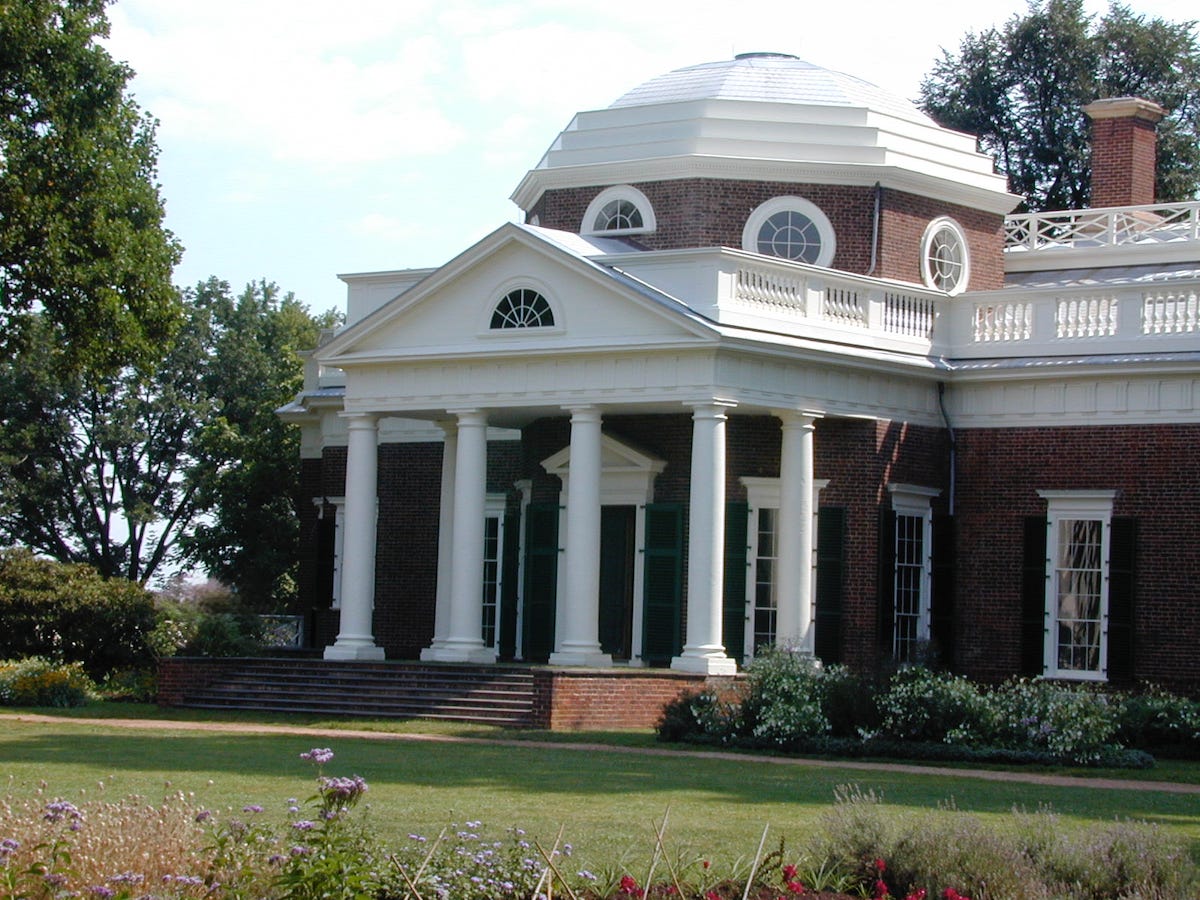Ever since I rode by it as a child in the 1950s, I have been fascinated by Thomas Jefferson’s home on the “little mountain” near where I now live. On the day of this post I shall visit Monticello to watch as a friend becomes a citizen of the US.

Monticello is a pretty intriguing place. It is an architectural beauty placed in a gorgeous setting and full of nifty features. Despite the history of people being enslaved there—and, indeed, in part because of that history—the grounds and buildings provide an opportunity for awe. This is the place where a group of American people lived before and after one of them wrote some of the most important words in human history:
We hold these truths to be self-evident, that all men are created equal, that they are endowed by their Creator with certain unalienable rights, including life, liberty, and the pursuit of happiness.
To be damn sure, in this statement there are words with which I quibble (“men” and “Creator,” for example), and the writer surely collaborated with others, so the words are not solely those of one person. But I don’t want those objections to get in the way of the big idea. People, simply because they are people, have a right to life, liberty, and the opportunity to seek joy. And I include among those people who have those rights, the individuals with disabilities about whom we members of the Special Education Today community care.
And, the topic of disabilities is more than incidental to my friend’s naturalization. She works for an organization that advocates for individuals with disabilities. She serves on the board for agencies that promote community opportunities for individuals with disabilities. She may not have a disability, but she’s here in my neighborhood helping the people about whom I care.
So, as I watch my friend profess an oath of allegiance1 on the west steps of Monticello, I anticipate that I shall be profoundly moved by her actions. She may be required to share allegiance to a geo-political organization, but I shall reflect about how she’s making a solemn promise to uphold the right for people to have lives in which they are free and able to pursue happiness.2

I hope that new (and continuing) citizens have opportunities to pursue happiness and live lives free from unreasonable government. And I hope we all help to ensure that our fellow humans also have that those same opportunities. Whether you are at Monticello, the high plains of the Himalayas, the rain forests of Amazonia, or even on Mars, I wish you a healthy, peaceful, and joyous Independence Day.
I am reluctant to proclaim allegiance to much of anything. Before I gave up on idolizing a supreme being, I thought it was inappropriate to swear an oath to something more supreme than God. When I abandoned theism, I still thought it was odd to profess a commitment to anything or anyone other than life. As I became even more disenchanted with symbolism, my objection to pledging allegiance to a flag continued to strengthen. So, for me personally, though I understand the importance of the oath that new citizens must take, I am uncomfortable with it. I think I can safely say that I love my neighbors and my regional governments, but I’m still not ready to swear allegiance to any one of them over the others.



